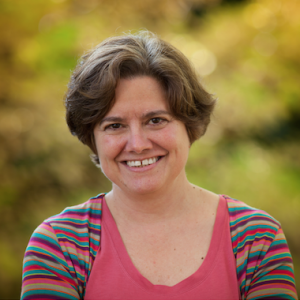
Julie Ahringer
University of Cambridge
UK
(Virtual Speaker)
EMBO Practical Course
Proof of COVID-19 vaccination or recovery is required to attend this on-site course. Please see EMBL’s COVID-19 safety policy for on-site events.
C. elegans is a popular experimental model that combines transparency, reproducible anatomy, traceable cell lineage, sequenced genome and facile genetics, allowing to dissect animal development, physiology, and behaviour across scales of genes, cells and tissues. This 7-day course will present experimental practices in C. elegans research, while introducing historic and up-to-date findings in various research topics.
Each day includes lectures, practicals, students flash-talks and interactive discussions with faculty. A series of methodologies commonly employed in C. elegans research will be presented in parallel practicals with rotating student groups by relevant experts. These experimental techniques span animal maintenance, handling, forward and reverse genetics, genome editing, imaging approaches for live and fixed samples, computational image analysis and other useful web resources. Meanwhile, lectures by internationally established researchers will present a variety of C. elegans research topics, spanning studies of the genome and epigenome, through cell cycle and death, to tissue specification, connectivity and function. A combination of senior and junior speakers will ensure a balanced view of pioneer breakthroughs and recent advances in the topics presented as well as the students’ interactions with researchers of different topics and career levels.
This practical course will be aimed at early career scientists, mostly postdocs and advanced graduate students with an interest in C. elegans. We will target both, participants with no prior experience in working with C. elegans who want to use this model organism to advance their research, as well as experienced C. elegans researchers who want to expand their tool set. The course will cover state-of-the-art techniques that are – or will become – essential for a broad range of research topics and we will therefore target participants with diverse research interests.
The course lectures and practical modules develop in three axes of genes, cells, tissues. It will cover the following modules:
Lectures:
Practicals:
After this course you should know:

University of Cambridge
UK
(Virtual Speaker)
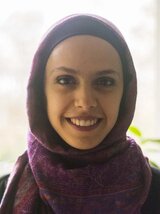
Helmholtz Zentrum München
Germany
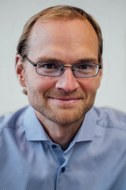
TU Dresden
Germany
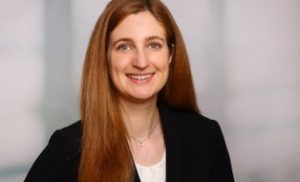
TU Dresden
Germany
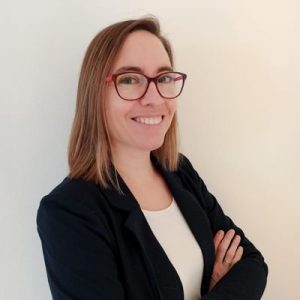
Helmholtz Zentrum München
Germany
The Chinese University of Hong Kong
Hong Kong SAR, China
(Virtual Trainer)
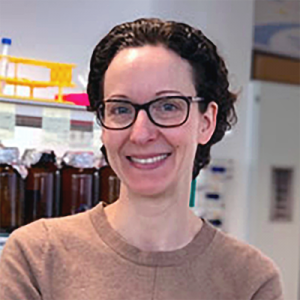
Johns Hopkins University School of Medicine
USA

University College London
UK
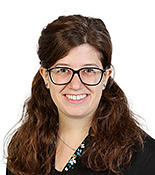
EMBL Heidelberg
Germany
Scientific Volume Imaging
The Netherlands
(Virtual Trainer)
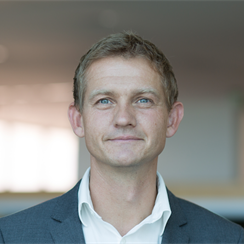
King Abdullah University of Science and Technology
Saudi Arabia
(Virtual Speaker)
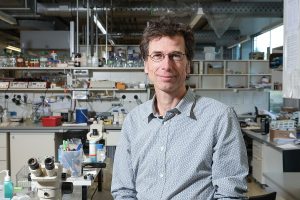
Swiss Federal Institute of Technology Lausanne
Switzerland
Peking University
China
(Virtual Trainer)

EMBL Heidelberg
Germany
Scientific Volume Imaging
The Netherlands
(Virtual Trainer)
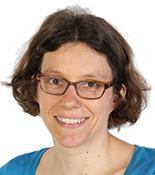
EMBL Heidelberg
Germany
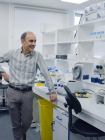
Institute of Biology Paris-Seine
France
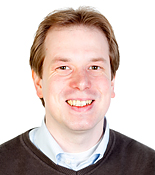
EMBL Heidelberg
Germany
City University of Hong Kong
Hong Kong SAR, China
(Virtual Trainer)
Hong Kong Baptist University
Hong Kong SAR, China
(Virtual Trainer)

University of Pennsylvania Perelman School of Medicine
USA
(Virtual Speaker)
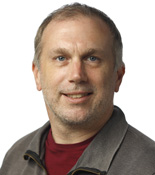
EMBL Heidelberg
Germany
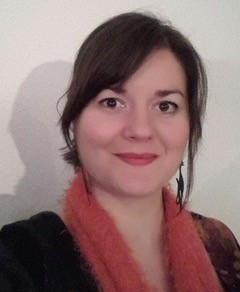
EMBL Heidelberg
Germany
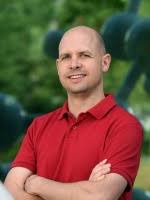
Janelia Research Campus
USA
(Virtual Speaker)
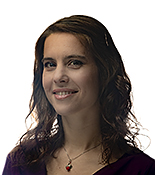
EMBL Heidelberg
Germany
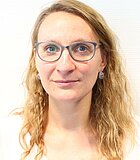
Institute of Genetics and Molecular and Cellular Biology
France
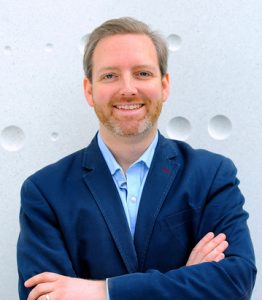
University of Cologne
Germany
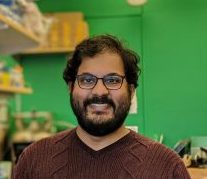
University of California, Los Angeles
USA
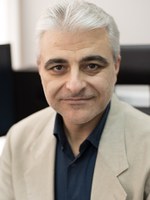
Foundation for Research and Technology-Hellas; University of Crete
Greece
EMBL Heidelberg
Germany

Hong Kong Baptist University
Hong Kong
(Virtual Speaker)
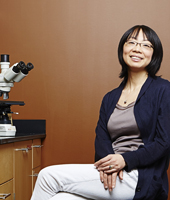
Lunenfeld-Tanenbaum Research Institute
Canada

TU Dresden
Germany
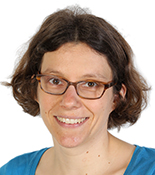
EMBL Heidelberg
Germany

EMBL Heidelberg
Germany
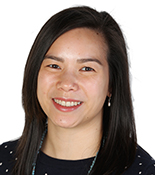
Course and Conference
Officer
EMBL Heidelberg
Germany
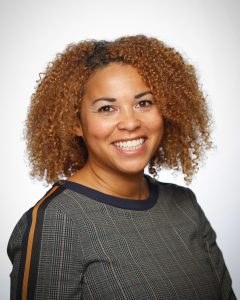
Training Laboratory
Manager
EMBL Heidelberg
Germany
Got something to say? Tweet it with #EMBOCelegans
| Time (Europe/Berlin) | Speaker | Location |
|---|---|---|
| 15:00 – 15:30 | Registration | ISG Hotel Seminar Room |
| 15:30 – 15:45 | Welcome and introductions Simone Köhler – EMBL Heidelberg, Germany Georgia Rapti – EMBL Heidelberg, Germany | ISG Hotel Seminar Room |
| 15:45 – 16:30 | Participant flash talks | ISG Hotel Seminar Room |
| 16:30 – 16:40 | Introduction of “Challenges and Expectations” icebreaker activity and divide into groups Yvonne Yeboah – EMBL Heidelberg, Germany | ISG Hotel Seminar Room |
| 16:40 – 16:55 | Coffee break | ISG Hotel Seminar Room |
| 16:55 – 17:45 | “Challenges and Expectations” icebreaker activity and presentations by groups Yvonne Yeboah – EMBL Heidelberg, Germany | ISG Hotel Seminar Room |
| 17:45 – 18:00 | Coffee break | ISG Hotel Seminar Room |
| 18:00 – 18:15 | Course overview Simone Köhler – EMBL Heidelberg, Germany Georgia Rapti – EMBL Heidelberg, Germany | ISG Hotel Seminar Room |
| 18:15 – 19:00 | Theory: – Introduction to useful web resources and databases for C. elegans research – Introduction on responsible conduct of research Simone Köhler – EMBL Heidelberg, Germany Georgia Rapti – EMBL Heidelberg, Germany | ISG Hotel Seminar Room |
| 19:00 – 21:00 | BBQ dinner and networking | ISG Hotel Restaurant and Biergarten |
| Time (Europe/Berlin) | Speaker | Location |
|---|---|---|
| 08:40 | Bus from ISG Hotel to EMBL | ISG Hotel entrance |
| 09:00 – 09:25 | Housenotes and safety introduction Yvonne Yeboah – EMBL Heidelberg, Germany | Courtyard Room A & B |
| 09:25 – 09:30 | Overview of the day | Courtyard Room A & B |
| 09:30 – 10:00 | Lecture 1: Chromatin structure and function Julie Ahringer – University of Cambridge, UK (Virtual Speaker) | Courtyard Room A & B |
| 10:00 – 10:15 | Q&A lecture 1 | Courtyard Room A & B |
| 10:15 – 10:45 | Lecture 2: Genome silencing Christian Frøkjær-Jensen – King Abdullah University of Science and Technology, Saudi Arabia (Virtual Speaker) | Courtyard Room A & B |
| 10:45 – 11:00 | Q&A lecture 2 | Courtyard Room A & B |
| 11:00 – 11:30 | Coffee break | Flex Lab A & B |
| 11:30 – 12:00 | Lecture 3: Epigenome and the environment Daphne Cabianca – Helmholtz Zentrum München, Germany | Courtyard Room A & B |
| 12:00 – 12:15 | Q&A lecture 3 | Courtyard Room A & B |
| 12:15 – 12:45 | Student presentations 1 by 3 participants (presentation schedule announced in EMBL eCampus) | Courtyard Room A & B |
| 12:45 – 13:45 | Lunch | EMBL Canteen Outdoor Tent |
| 13:45 – 16:30 | Lab practical A: C. elegans culture, maintenance and handling Trainers: Daphne Cabianca (with helper from lab), Francesca Coraggio, Simone Köhler (with helper from lab), Cristina Piñeiro López, Georgia Rapti (with helper from lab) | Training Lab A & B |
| 16:30 – 17:00 | Coffee break | Flex Lab A & B |
| 17:00 – 20:00 | Lab practical B (part 1): Methods of genetic manipulation Trainers: Daphne Cabianca (with helper from lab), Francesca Coraggio, Simone Köhler (with helper from lab), Alexander Paix, Cristina Piñeiro López, Georgia Rapti (with helper from lab) | Training Lab A & B |
| 20:00 – 21:00 | Canteen Dinner | EMBL Canteen |
| 21:10 | Bus from EMBL to ISG Hotel | ATC entrance |
| Time (Europe/Berlin) | Speaker | Location |
|---|---|---|
| 08:40 | Bus from ISG Hotel to EMBL | ISG Hotel entrance |
| 09:00 – 09:05 | Overview of the day | Courtyard Room A & B |
| 09:05 – 09:35 | Lecture 4: Centriole assembly and elimination: from gene discover to function Pierre Gönczy – Swiss Federal Institute of Technology Lausanne, Switzerland | Courtyard Room A & B |
| 09:35 – 09:50 | Q&A lecture 4 | Courtyard Room A & B |
| 09:50 – 10:20 | Live Q&A to pre-recorded lecture 5: Actin dynamics in the early C. elegans embryo, inherited cell fate determinant? Anne-Cécile Reymann – Institute of Genetics and Molecular and Cellular Biology, France | Courtyard Room A & B |
| 10:20 – 10:50 | Coffee break | Flex Lab A & B |
| 10:50 – 11:20 | Lecture 6: Self-organization in meiosis Simone Köhler – EMBL Heidelberg, Germany | Courtyard Room A & B |
| 11:20 – 11:35 | Q&A lecture 6 | Courtyard Room A & B |
| 11:35 – 12:20 | Student presentations 2 by 4 participants (presentation schedule announced in EMBL eCampus) | Courtyard Room A & B |
| 12:20 – 13:20 | Communal lunch discussions with: – Daphne Cabianca on “Choosing a postdoc” and “Starting a junior PI position” – Anne-Cécile Reymann on “Getting a research PI position” and “Starting a junior PI position” | EMBL Canteen Outdoor Tent |
| 13:20 – 18:50 | Lab practical B (part 2): Methods of genetic manipulation (with flexible coffee break) Trainers: Daphne Cabianca (with helper from lab), Francesca Coraggio, Simone Köhler (with helper from lab), Alexander Paix, Cristina Piñeiro López, Georgia Rapti (with helper from lab) | Training Lab A & B Köhler / Rapti Labs |
| 18:50 – 19:50 | Pizza dinner | ATC Rooftop Lounge |
| 20:00 | Bus from EMBL to ISG Hotel | ATC entrance |
| Time (Europe/Berlin) | Speaker | Location |
|---|---|---|
| 08:40 | Bus from ISG Hotel to EMBL | ISG Hotel entrance |
| 09:00 – 09:05 | Overview of the day | Courtyard Room A & B |
| 09:05 – 09:35 | Lecture 7: Apoptosis: programmed cell death in development Barbara Conradt – University College London, UK | Courtyard Room A & B |
| 09:35 – 09:50 | Q&A lecture 7 | Courtyard Room A & B |
| 09:50 – 10:20 | Lecture 8: Necrosis and autophagy: cell death programs in aging and degeneration Nektarios Tavernarakis – Foundation for Research and Technology-Hellas; University of Crete, Greece | Courtyard Room A & B |
| 10:20 – 10:35 | Q&A lecture 8 | Courtyard Room A & B |
| 10:35 – 11:05 | Coffee break | Flex Lab A & B |
| 11:05 – 11:35 | Lecture 9: Genome stability in ageing and disease Björn Schumacher – University of Cologne, Germany | Courtyard Room A & B |
| 11:35 – 11:50 | Q&A lecture 9 | Courtyard Room A & B |
| 11:50 – 12:20 | Student presentations 3 by 2 participants (presentation schedule announced in EMBL eCampus) | Courtyard Room A & B |
| 12:20 – 13:00 | Communal lunch discussions with: – Nektarios Tavernarakis on “Publishing”, “Grant writing” and “Science policy & communication” – Pierre Gönczy and Michel Labouesse on“Choosing a postdoc” and “Getting a research PI position” – Barbara Conradt on “Getting a research PI position” and “Starting a junior PI position” | EMBL Canteen Outdoor Tent |
| 13:10 | Group photo | |
| 13:20 – 18:50 | Lab practical C (part 1): Imaging cells and molecules (with flexible coffee break) Trainers: Francesca Coraggio, Simone Köhler (with helper from lab), Cristina Piñeiro López, Georgia Rapti (with helper from lab), Inka Busack (with helper from the Bringmann lab), Christian Tischer, Arif ul Maula Khan | Microscopy Rooms 117 A & B ALMF Computer Training Lab |
| 18:50 – 19:50 | Canteen dinner | EMBL Canteen |
| 20:00 | Bus from EMBL to ISG Hotel | ATC entrance |
| Time (Europe/Berlin) | Speaker | Location |
|---|---|---|
| 08:40 | Bus from ISG Hotel to EMBL | ISG Hotel entrance |
| 09:00 – 09:05 | Overview of the day | Courtyard Room A & B |
| 09:05 – 09:35 | Student presentations 4 by 3 participants (presentation schedule announced in EMBL eCampus) | Courtyard Room A & B |
| 09:35 – 10:05 | Lecture 10: Roles of microRNAs in development Luisa Cochella – Johns Hopkins University, USA | Courtyard Room A & B |
| 10:05 – 10:20 | Q&A lecture 10 | Courtyard Room A & B |
| 10:20 – 10:35 | Coffee break | Flex Lab A & B |
| 10:35 – 13:05 | Lab practical C (part 2): Imaging cells and molecules Trainers: Francesca Coraggio, Simone Köhler (with helper from lab), Cristina Piñeiro López, Georgia Rapti (with helper from lab), Inka Busack (with helper from the Bringmann lab), Christian Tischer, Arif ul Maula Khan | Microscopy Rooms 117 A & B ALMF Computer Training Lab |
| 13:05 – 14:05 | Communal lunch discussions with: – Michel Labouesse on “Publishing”, “Grant writing” and “Science policy & communication” – Luisa Cochella on “Choosing a postdoc” and “Getting a research PI position” – Barbara Conradt on “Publishing”, “Grant writing” and “Choosing a postdoc” | EMBL Canteen Outdoor Tent |
| 14:05 – 16:35 | Lab practical C (part 3): Imaging cells and molecules Trainers: Francesca Coraggio, Simone Köhler (with helper from lab), Cristina Piñeiro López, Georgia Rapti (with helper from lab), Inka Busack (with helper from the Bringmann lab), Christian Tischer, Arif Khan | Microscopy Rooms 117 A & B ALMF Computer Training Lab |
| 16:35 – 17:05 | Coffee break | Flex Lab A & B |
| 17:05 – 17:35 | Lecture 11: Transcriptome dynamics in development John Murray – University of Pennsylvania, USA (Virtual Speaker) | Courtyard Room A & B |
| 17:35 – 17:50 | Q&A lecture 11 | Courtyard Room A & B |
| 17:50 – 18:20 | Live Q&A to pre-recorded lecture 12: Connecting mechanical forces to cellular processes Michel Labouesse – Institut de Biologie Paris-Seine, France | Courtyard Room A & B |
| 18:20 – 18:50 | Student presentations 5 by 2 participants (presentation schedule announced in EMBL eCampus) | Courtyard Room A & B |
| 19:00 | Bus from EMBL to ISG Hotel | ATC entrance |
| 19:15 – 20:15 | Buffet dinner | ISG Hotel Restaurant and Biergarten |
| Time (Europe/Berlin) | Speaker | Location |
|---|---|---|
| 08:40 | Bus from ISG Hotel to EMBL | ISG Hotel entrance |
| 09:00 – 09:05 | Overview of the day | Courtyard Room A & B |
| 09:05 – 09:35 | Lecture 13: Tracing embryonic development Zhongying Zhao – Hong Kong Baptist University, Hong Kong (Virtual Speaker) | Courtyard Room A & B |
| 09:35 – 09:50 | Q&A lecture 13 | Courtyard Room A & B |
| 09:50 – 10:20 | Coffee break | Flex Lab A & B |
| 10:20 – 12:50 | Lab practical D (part 1): Advanced image analysis tools Trainers: Inka Busack, Marko Lampe, John Murray (Virtual Trainer), Pavak Shah, Zhongying Zhao (Virtual Trainer, with helpers) | Computer Training Lab Courtyard Room A & B Meeting Room B11 Meeting Room A23 |
| 12:50 – 13:50 | Communal lunch discussions with: – Luisa Cochella on “Publishing”, “Grant writing” and “Starting a junior PI position” – Pavak Shah on “Getting a research PI position” and “Getting a positions in a teaching/ PUI institutions” – Mei Zhen on “Publishing”, “Grant writing” and “Science policy & communication” | EMBL Canteen Outdoor Tent |
| 13:50 – 16:50 | Lab practical D (part 2): Advanced image analysis tools Trainers: Inka Busack, Marko Lampe, John Murray (Virtual Trainer), Pavak Shah, Zhongying Zhao (Virtual Trainer, with helpers) | Computer Training Lab Courtyard Room A & B Meeting Room B11 Meeting Room A23 |
| 16:50 – 17:20 | Coffee break | Flex Lab A & B |
| 17:20 – 17:50 | Lecture 14: Modeling morphogenesis Stephan Preibisch – Janelia Research Campus, USA (Virtual Speaker) | Courtyard Room A & B |
| 17:50 – 18:05 | Q&A lecture 14 | Courtyard Room A & B |
| 18:05 – 18:35 | Lecture 15: Optogenetic manipulation of tissue activity Henrik Bringmann – TU Dresden, Germany | Courtyard Room A & B |
| 18:35 – 18:50 | Q&A lecture 15 | Courtyard Room A & B |
| 19:00 | Bus from EMBL to downtown | ATC entrance |
| 20:00 | Downtown course dinner | Downtown restaurant |
| Time (Europe/Berlin) | Speaker | Location |
|---|---|---|
| 08:40 | Bus from ISG Hotel to EMBL | ISG Hotel entrance |
| 09:00 – 09:05 | Overview of the day | Courtyard Room A & B |
| 09:05 – 09:50 | Student presentations 6 by 4 participants (presentation schedule announced in EMBL eCampus) | Courtyard Room A & B |
| 09:50 – 10:20 | Lecture 16: Synaptogenesis from genetics to electron microscopy Mei Zhen – Lunenfeld-Tanenbaum Research Institute, Canada | Courtyard Room A & B |
| 10:20 – 10:35 | Q&A lecture 16 | Courtyard Room A & B |
| 10:35 – 11:05 | Coffee break | Flex Lab A & B |
| 11:05 – 11:35 | Lecture 17: Glia and neuron interactions in nervous system assembly Georgia Rapti – EMBL Heidelberg, Germany | Courtyard Room A & B |
| 11:35 – 11:50 | Q&A lecture 17 | Courtyard Room A & B |
| 11:50 – 12:20 | Lecture 18: Tracing circuit activity in development Pavak Shah – University of California, Los Angeles, USA | Courtyard Room A & B |
| 12:20 – 12:35 | Q&A lecture 18 | Courtyard Room A & B |
| 12:35 – 12:50 | Feedback session and closing remarks | Courtyard Room A & B |
| 12:50 – 13:30 | Packed lunch and departure | |
| 13:30 | Bus to Heidelberg Main Train Station and downtown | ATC entrance |
The course is limited to 18 participants. For selection purposes, please note that your application will not be considered without a letter of motivation.
Registration Fees include admission, course materials, COVID-19 safety measures, meals and coffee breaks.
This EMBO course includes accommodation and transportation to and from the ISG Hotel to the venue.
| Academia | €500 |
| PhD Student | €500 |
| Industry | €1000 |
NO visa support letters will be issued until payment of the registration fee is confirmed.
The registration fee should be paid only after acceptance to the course. The results will be announced approximately 2-3 weeks after the application deadline.
After you have logged in and successfully registered, you will receive an email asking you to submit your motivation letter. Click on the link provided and enter your motivation letter in the text box provided. Alternatively you can submit your motivation letter by clicking on the link on the confirmation page directly after registering.
Instructions
Please note:
For more detailed information, follow the instructions provided in our video on how to submit a course motivation letter.
For further information about registration and motivation letter submission please refer to the FAQ page.
Limited financial assistance is provided by the EMBL Advanced Training Centre Corporate Partnership Programme and EMBO in the form of both registration fee waivers and travel grants. Availability is limited to participants attending on-site events in Heidelberg and will be indicated during the abstract or motivation letter submission process.
Your place in the meeting is only confirmed by paying the registration fee, which is mandatory even when receiving a fee waiver.
The fee waiver will cover the registration sum that you have paid to attend the course or conference.
The travel grant will cover the cost of travel (airfare, train, bus, taxi, accommodation, visa, and/or registration fees*) and is provided up to specified caps which are normally as follows:
– up to €400 for participants travelling to an EMBL Course, EMBL Conference or EMBO|EMBL Symposium from within Europe.
– up to €1000 for participants travelling to an EMBL Course, EMBL Conference or EMBO|EMBL Symposium from outside Europe.
– up to €500 for any participant travelling to an EMBO Practical Course or EMBO Workshop.
– up to €1000 for any participant working in Chile, India, Singapore or Taiwan travelling to an EMBO Practical Course or EMBO Workshop.
*Registration fees are only covered for EMBO Practical Courses or EMBO Workshops
The organisers may reduce the grant cap to accommodate more participants. Recipients will be notified of their travel cap amount when they are informed of the outcome of their application. Original receipts must be provided with your signature for all costs incurred within two months of completion of travel. Scanned copies cannot be accepted.
For EMBO Practical Course or EMBO Workshop participants with children, there is the possibility to apply for a childcare grant to offset child care costs incurred by participants or speakers when participating at a course or conference. Eligible costs include fees for a baby-sitter or child-care facility, travel costs for a care giver, or travel costs for taking the child to the meeting etc. Please note that priority will be given to early stage researchers. A maximum amount of 500 EUR can be awarded per participant applying for an EMBO Childcare Grant. In order to apply for this grant for EMBO Workshops, you must be registered by the abstract submission deadline.
Applies to selected courses only. Availability will be indicated during the abstract or motivation letter submission process.
This grant covers costs related to your attendance to the course (registration, travel and accommodation costs). The grant is restricted to PhD students and postdocs who conduct basic biomedical research.
Whether you are eligible to apply for a travel grant, depends on when you received your university entrance qualification (e.g. Abitur, A-Levels, High School Diploma, Final State Examination):
– for PhD and MD students, as well as graduates, the university entrance qualification must not have been obtained more than 11 years ago at the time of the envisaged course
– for postdocs, the university entrance qualification must not have been obtained more than 13 years ago at the time of the envisaged course
You may apply for financial assistance when submitting your motivation letter for courses, and abstract for conferences. In your application you will be asked to answer questions regarding why your lab cannot fund your attendance and how your attendance will make a difference to your career. Application for financial support will not affect the outcome of your registration application.
For the Boehringer Ingelheim Fonds Travel Grant, there is a pre-application question during the motivation letter submission process, and if selected you will be requested to complete a standard form and documentation consisting of your travel expense estimation.
The scientific organisers will select the recipients of all financial assistance during the motivation letter or abstract selection process. Results will be announced approximately 6-8 weeks before the event start date, however for some events this may be delayed. Selection results do not impact your admission to the meeting. Selection is based on your current work or study location, the reasons for needing financial support and the impact this event will have on your career.
Costs will be reimbursed after the meeting only once a reimbursement form and original receipts (from travel costs) have been received.
View our list of external funding opportunities and information on attending a conference as an event reporter.
For further information about financial assistance please refer to the FAQ page.
Accommodation has been pre-booked for you at the ISG Hotel for the default dates of to 17-23 July 2022 (6 nights). Please note that the course registration fee includes coverage of accommodation costs in twin rooms, including breakfasts, for your stay at the ISG, but that you will be required to pay an additional cost of 21 EUR per night for a single room. This should be paid by you directly to the ISG during your stay. Any additional nights need to be booked and paid for by you. We recommend that all course participants stay at the ISG Hotel which is the dedicated hotel for the course.
Shuttle buses will go from the ISG Hotel to EMBL and back, mornings and evenings. A bus schedule and location of the bus stops will be made available prior to the meeting.
Address: EMBL Heidelberg, Meyerhofstraße 1, 69117 Heidelberg, Germany
For further information on getting to EMBL Heidelberg visit our Travel Information page.
For enquiries about accommodation and local transportation please refer to the FAQ page.
Below you will find the software and technical requirements for this course.
The EMBL eCampus learning platform will be used to collaborate, communicate and network with all of the course participants. All participants will receive information on how to join shortly before the course. We recommend using Chrome, Safari or Mozilla Firefox browsers for eCampus.
Please find additional information including FAQs, terms and conditions, COVID-19 safety policy and travelling to EMBL on our Information for Participants page.
COVID-19 information for onsite events at EMBL Heidelberg can be found in our COVID-19 FAQs.
Sponsorship opportunities
We offer a variety of event sponsoring possibilities, with the flexibility to select a set sponsorship package or combine individual sponsorship options to suit your event budget. Discounts are available for companies sponsoring multiple events at EMBL Heidelberg. View other conferences, or contact sponsorship@embl.de for further information.
If you are interested in becoming a media partner of this event, please visit our media partnerships webpage.

Date: 17 - 23 Jul 2022
Location: EMBL Heidelberg
Venue: EMBL Advanced Training Centre
Deadline(s):
Application: Closed
Organisers:
Contact: Lisa Trinh